
The New York Times has obtained a copy of a brace of letters sent by President Trump’s legal team to Robert Mueller back in June 2017 and January 2018 telling Mueller that he did not have the authority to try to indict President Trump on obstruction of justice charges.
President Trump’s lawyers have for months quietly waged a campaign to keep the special counsel from trying to force him to answer questions in the investigation into whether he obstructed justice, asserting that he cannot be compelled to testify and arguing in a confidential letter that he could not possibly have committed obstruction because he has unfettered authority over all federal investigations.
In a brash assertion of presidential power, the 20-page letter — sent to the special counsel, Robert S. Mueller III, and obtained by The New York Times — contends that the president cannot illegally obstruct any aspect of the investigation into Russia’s election meddling because the Constitution empowers him to, “if he wished, terminate the inquiry, or even exercise his power to pardon.”
Mr. Trump’s lawyers fear that if he answers questions, either voluntarily or in front of a grand jury, he risks exposing himself to accusations of lying to investigators, a potential crime or impeachable offense.
Mr. Trump’s broad interpretation of executive authority is novel and is likely to be tested if a court battle ensues over whether he could be ordered to answer questions. It is unclear how that fight, should the case reach that point, would play out. A spokesman for Mr. Mueller declined to comment.
“We don’t know what the law is on the intersection between the obstruction statutes and the president exercising his constitutional power to supervise an investigation in the Justice Department,” said Jack Goldsmith, a Harvard Law School professor who oversaw the Justice Department’s Office of Legal Counsel during the Bush administration. “It’s an open question.”
And, naturally, these letters brought out the crazy.
A newly leaked memo by Trump’s lawyers suggests that a constitutional crisis has already begun – article by @jonathanchait https://t.co/qwYoAxMI3e
— New York Magazine (@NYMag) June 2, 2018
WHAT?! I’m sorry but the President is NOT above the law. This is an assertion that he IS THE LAW. Constitutional Crisis? Bring it on. #HereWeGo https://t.co/zfhQcdbrqQ
— Malcolm Nance (@MalcolmNance) June 2, 2018
Trump *thinks* he is above the law.
His lawyers are arguing he cannot obstruct justice b/c he has unfettered power. They’re wrong.
America is not a dictatorship (yet).
Here are 2 legal experts to follow and amplify as a constitutional crisis looms: @tribelaw and @PreetBharara.
— Ryan Knight 🌹 (@ProudSocialist) June 3, 2018
The #ConstitutionalCrisis Is Already Underway:
'Before this is over, either Trump’s sweeping claim [I am the law] will survive, or the rule of law will, but not both.'#Constitution #RuleOfLaw #pardons #TrumpIsNOTAboveTheLaw https://t.co/9QiP5dlq4O
— Alice Stollmeyer (@StollmeyerEU) June 3, 2018
There are two separate and distinct threads running here. First, there is the issue of whether the president can actually obstruct justice. This is how the Trump-hostile LawfareBlog.com frames the arguments:
…These letters argue, essentially, that the president can’t obstruct justice. That is because, they say, obstruction of justice “would amount to him obstructing himself” as the nation’s chief law enforcement officer. Indeed, he could “terminate the inquiry, or even exercise his power to pardon” himself at any time “if he so desired.” As president, the letter asserts, Trump was free to fire former FBI Director Jim Comey “at any time and for any reason,” and even today he could “order the termination of [the] investigation”—in which he is a subject—“at any time and for any reason.” In other words, even if the president fired Comey (or Mueller) solely to protect himself from criminal liability, it’s all perfectly legitimate.
These are interesting legal questions. Could the president stop an investigation of himself, if not directly then by firing as many Justice Department officials as it takes until he finds one who will do it for him? Could he self-pardon for “all prior federal crimes,” including things like tax evasion, and continue doing so each morning for the rest of his tenure in office? Law school exam-writers—take note. But the real question is, if he did something like that, would Congress or the American people react? Law enforcement and politics intersect here.
IANAL, but I tend to go with Alan Dershowitz and Andy McCarthy on this and believe that the president has the authority to halt any investigation at any time for any reason. Otherwise, carried to its logical conclusion, an FBI agent could start an investigation on their own volition. If their supervisor said, knock it off. That supervisor would be guilty of obstruction of justice. The issue is one of who has the authority to set investigative priorities for the FBI and Justice and other federal law enforcement agencies and the Constitution is pretty clear: “The executive power shall be vested in a President of the United States of America.” Some of that power has been delegated to “inferior officers” but delegation of power does not mean abrogation of power.
Quite honestly, I can’t imagine why Mueller is even pursuing this as it a) seems vindictive, and b) appears to be a political hit job rather than a good faith effort to find an answer to the Russian collusion allegation–something Mueller seems supremely unconcerned about at the moment despite the damage it is doing to the administration.
The second is just as irritating to the left but not really subject to argument. Can Trump be indicted?
Suppose President Trump punched the First Lady in the White House (federal property = federal jurisdiction), then ordered the Secret Service to conceal the assault. POTUS has Article II authority over Secret Service. Is that obstruction? Under Sekulow/Dowd, apparently NO
— David Frum (@davidfrum) June 2, 2018
The answer here, as much as the left and NeverTrump coalition might not like to hear it, is clear an unambiguous. President Trump cannot be indicted while he is serving as president. This is from the DOJ memorandum on the subject. What this means is that no employee of the Justice Department, like Mueller, can attempt to indict President Trump. It further means that if Mueller somehow cajoles Rod Rosenstein into letting him get a subpoena, there is no legal mechanism by which Trump can be compelled to obey. Period. End of Constitutional Crisis.
In 1973, the Department of Justice concluded that the indictment and criminal prosecution of a sitting President would unduly interfere with the ability of the executive branch to perform its constitutionally assigned duties, and would thus violate the constitutional separation of powers. No court has addressed this question directly, but the judicial precedents that bear on the continuing validity of our constitutional analysis are consistent with both the analytic approach taken and the conclusions reached. Our view remains that a sitting President is constitutionally immune from indictment and criminal prosecution.
Key point: Even if Trump's lawyers are correct on this point, abuse of such power could still be an impeachable offense. https://t.co/Ts7XAOqZrI
— Jonathan H. Adler (@jadler1969) June 2, 2018
The real question is what would Congress do if Trump did pull the plug on Mueller? My gut feeling is that Mueller’s star is sufficiently low that if Trump decided to fire Mueller and direct a final report be written on the Russian collusion allegation that there would be huffing and puffing but no one’s house would get blown down. Public trust in Mueller is low and it is falling. In early May a CBS poll indicated that a solid majority of Americans, 53%, thought the Mueller investigation was politically inspired. That number is probably lower today. If the GOP holds its House majority in November, something that is looking more and more likely, then that new Congress is not going to vote to impeach Trump because a lot of them will have owed their election to him.

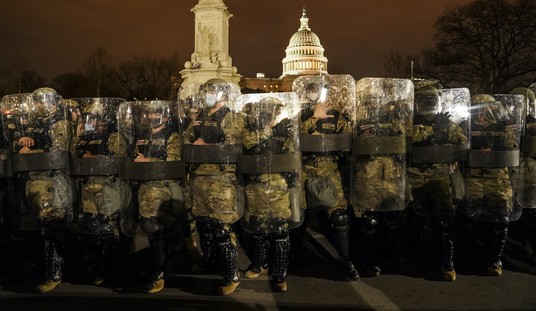

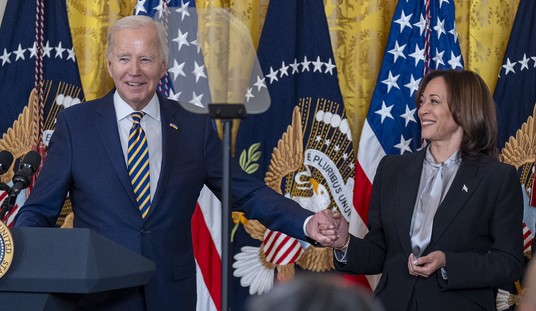
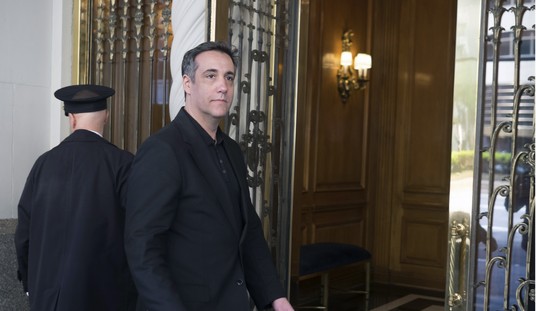
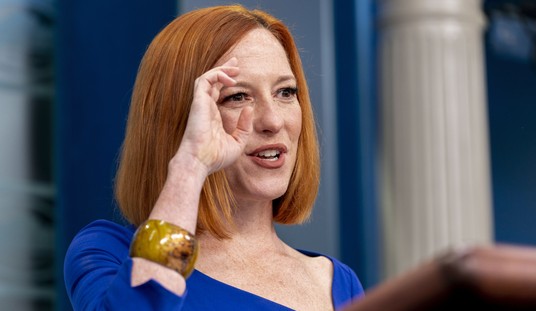

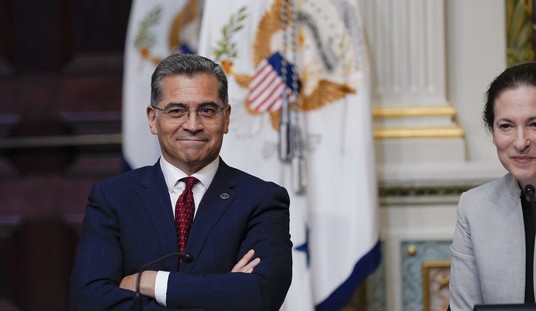

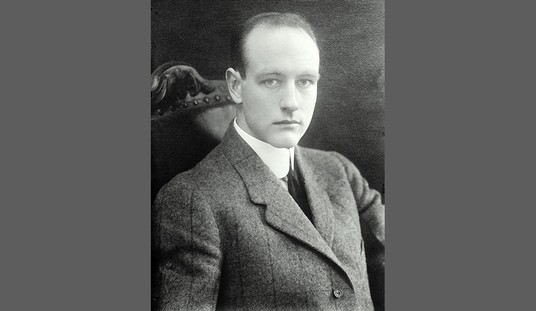
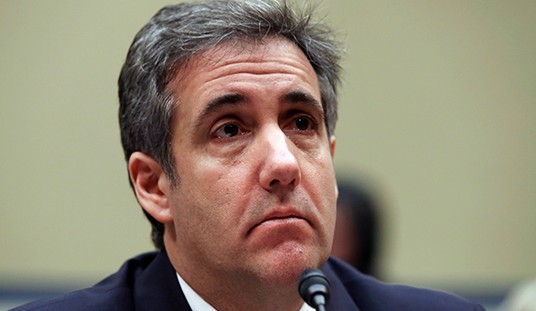



Join the conversation as a VIP Member